Running a successful online store takes the right ecommerce tools to stay competitive. Whether it’s optimizing your ecommerce website, improving customer relationships, or tracking customer behavior, these tools help businesses manage their operations and grow.
This guide highlights the top ecommerce tools across categories like SEO tools, analytics tools, and marketing automation. Whether you’re a small business or a thriving ecommerce brand, these solutions can help you enhance your ecommerce site and build a stronger online business.
eCommerce Customer Service Software
Delivering excellent customer service is key to running a successful online store. The right customer service tools can enhance customer relationships, improve customer satisfaction, and encourage repeat customers. Below are some of the best tools tailored for ecommerce businesses.
1. Desku
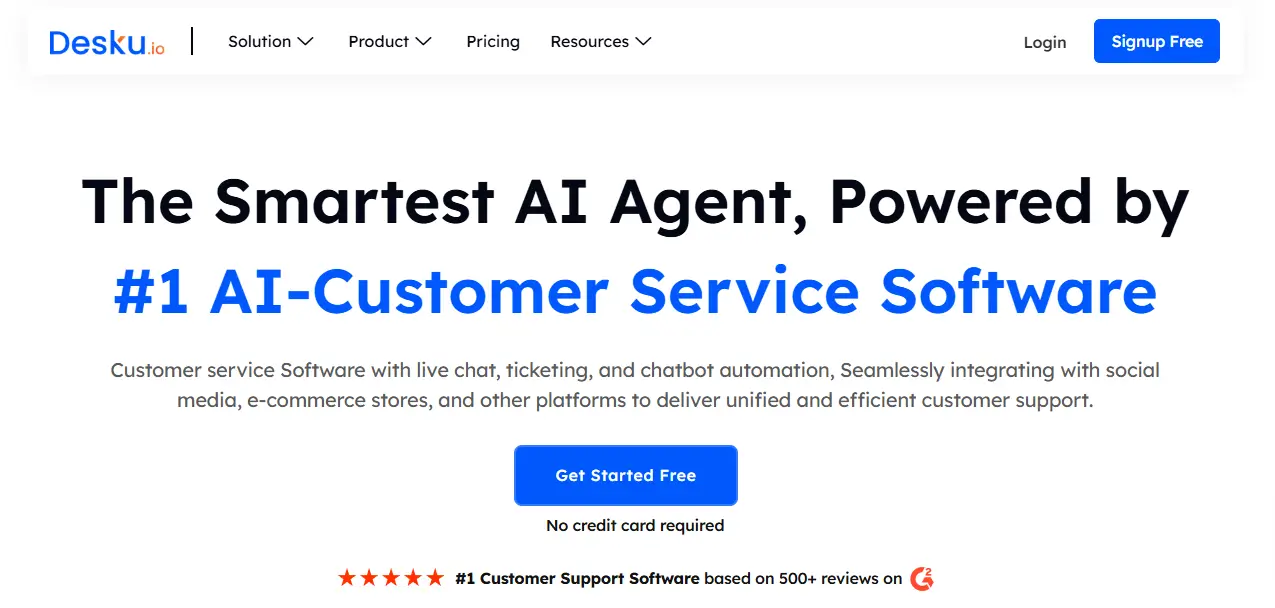
Desku is an all-in-one customer service tool designed to simplify support processes for ecommerce websites. It enables businesses to handle customer queries efficiently, fostering stronger customer relationships.
- Key Features:
- Omnichannel support for email, live chat, and social media.
- Automation for ticket routing and quick responses.
- Built-in knowledge base to assist with self-service.
- Benefits for Ecommerce:
Desku helps ecommerce businesses provide consistent support, leading to enhanced customer satisfaction and better management of customer behavior. - Pricing: Starts at $19/month for the Starter plan.
2. Freshdesk
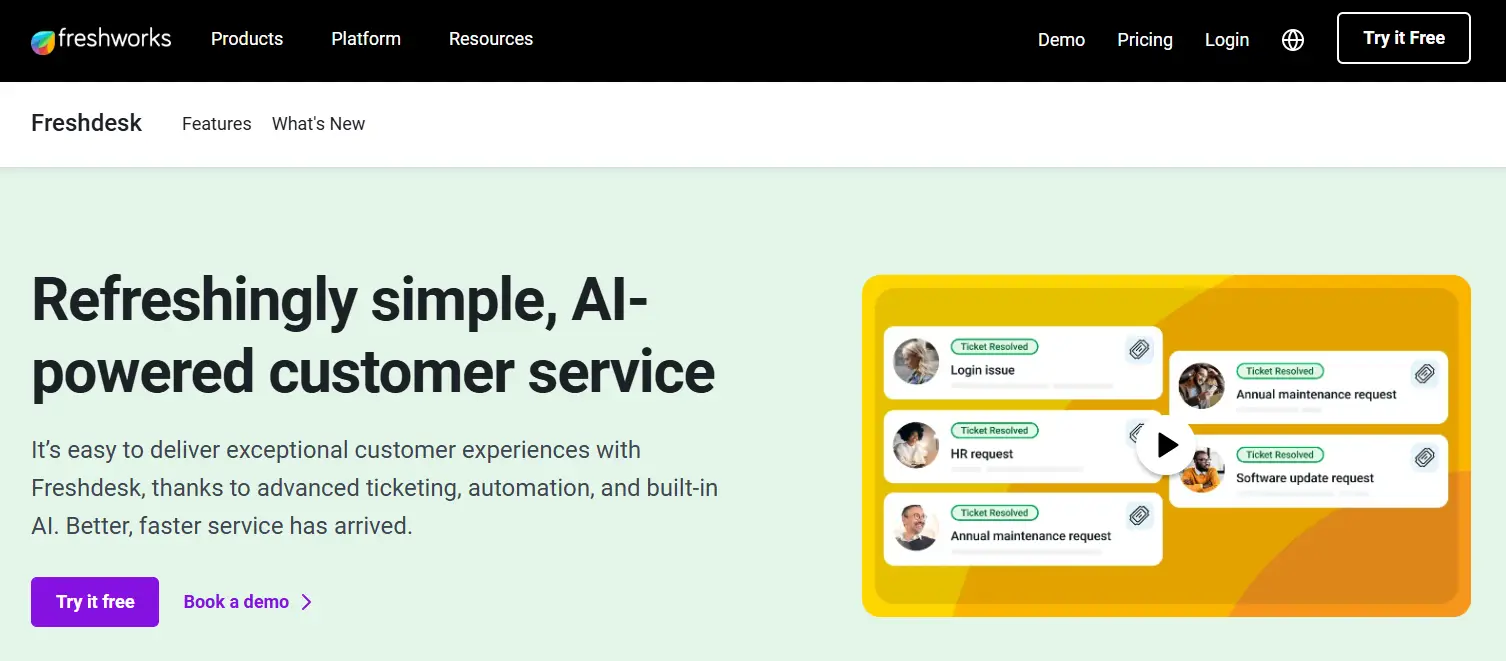
Freshdesk is another excellent choice for ecommerce businesses looking for user-friendly helpdesk software. It combines automation, self-service tools, and ticketing systems to provide top-notch support.
- Key Features:
- AI-driven automation for faster ticket resolution.
- Self-service portals for customers to find answers quickly.
- Integration with popular ecommerce platforms like Shopify and WooCommerce.
- Benefits for Ecommerce:
Helps improve customer engagement by streamlining support processes. - Pricing: Free for basic features; paid plans start at $15/agent/month.
3. Gorgias

Specifically designed for ecommerce brands, Gorgias focuses on providing customer support directly within your ecommerce platform.
- Key Features:
- Centralized dashboard to manage support tickets.
- Integration with major ecommerce platforms, including Shopify and BigCommerce.
- Tools for tracking customer behavior and offering personalized support.
- Benefits for Ecommerce:
Gorgias empowers businesses to boost customer satisfaction by offering fast, personalized assistance. - Pricing: Starts at $10/month for basic plans.
eCommerce Email Marketing Tools
Email marketing remains one of the most effective ways to drive sales and engage with potential customers. With the right ecommerce email marketing tools, businesses can automate email campaigns, nurture customer relationships, and boost customer engagement. Here are some top tools for ecommerce businesses:
1. Omnisend

Omnisend is a robust email marketing platform tailored specifically for ecommerce businesses. It combines email and SMS marketing to create cohesive campaigns.
- Key Features:
- Ready-made email templates optimized for ecommerce websites.
- Advanced segmentation to target specific customer behavior.
- Automation workflows for cart abandonment, welcome emails, and order follow-ups.
- Benefits for Ecommerce:
Omnisend helps increase sales by delivering personalized email campaigns and streamlining the marketing process. - Pricing: Free plan available; paid plans start at $16/month.
2. Klaviyo

Klaviyo is a leading email marketing tool for creating personalized customer experiences. It integrates seamlessly with popular ecommerce platforms to track and act on customer data.
- Key Features:
- Pre-built templates for effective email campaigns.
- Integration with Shopify, WooCommerce, and other ecommerce platforms.
- Real-time insights into campaign performance and customer behavior.
- Benefits for Ecommerce:
Klaviyo enables businesses to deliver data-driven, targeted messages that enhance customer engagement and boost conversions. - Pricing: Free for up to 500 emails/month; paid plans start at $20/month.
3. Mailchimp

Mailchimp is one of the most popular marketing tools for small and medium ecommerce businesses. It offers a user-friendly interface and a wide array of features for managing email campaigns.
- Key Features:
- Drag-and-drop email editor with pre-designed templates.
- A/B testing for optimizing marketing efforts.
- Integration with top ecommerce platforms like Shopify and BigCommerce.
- Benefits for Ecommerce:
Mailchimp simplifies the marketing process by offering tools for creating professional email campaigns that help generate sales and retain repeat customers. - Pricing: Free plan available; paid plans start at $13/month.
eCommerce Social Media Marketing Tools
A consistent social media presence is crucial for building brand awareness and connecting with potential customers. Using the right ecommerce tools for social media can streamline your marketing efforts and boost engagement. Here are some top tools to enhance your ecommerce marketing on social platforms:
1. Hootsuite
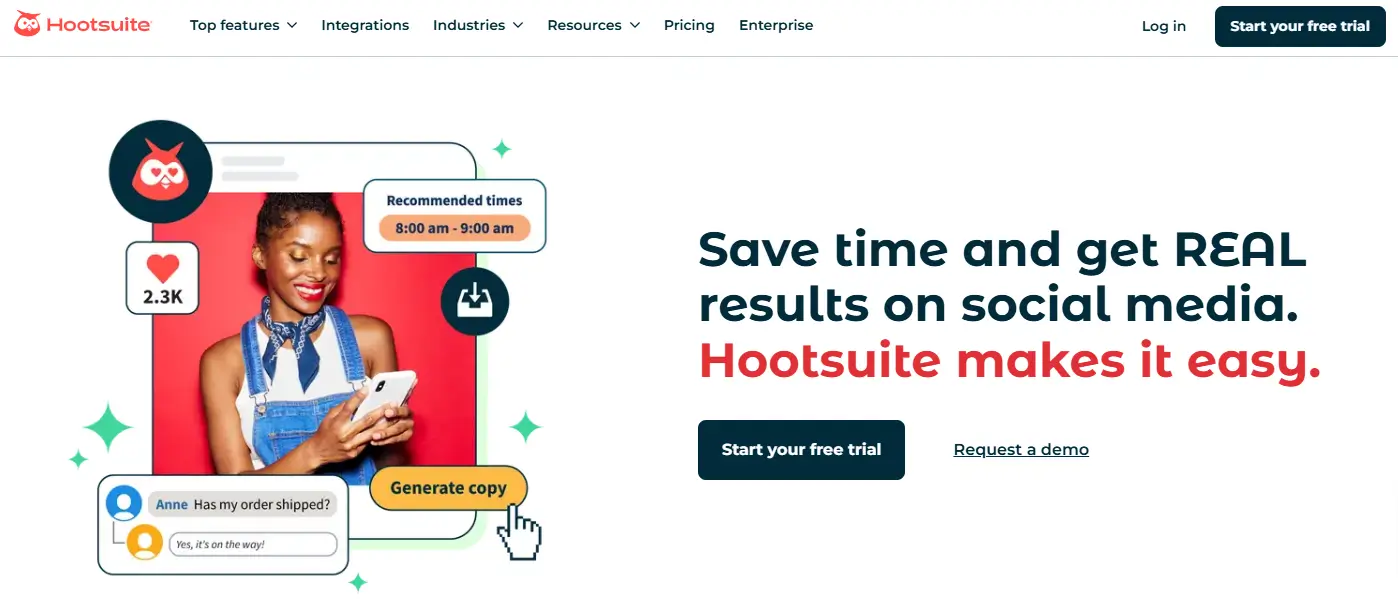
Hootsuite is a powerful tool for managing multiple social media accounts and scheduling posts in advance. It helps ecommerce businesses stay active on social platforms without spending hours every day.
- Key Features:
- Centralized dashboard to manage all major social networks.
- Scheduling tools for posting content at optimal times.
- Analytics to track the success of marketing campaigns.
- Benefits for Ecommerce:
Hootsuite allows ecommerce brands to maintain a consistent social media presence, attract potential customers, and analyze user engagement. - Pricing: Free plan available; paid plans start at $99/month.
2. Buffer
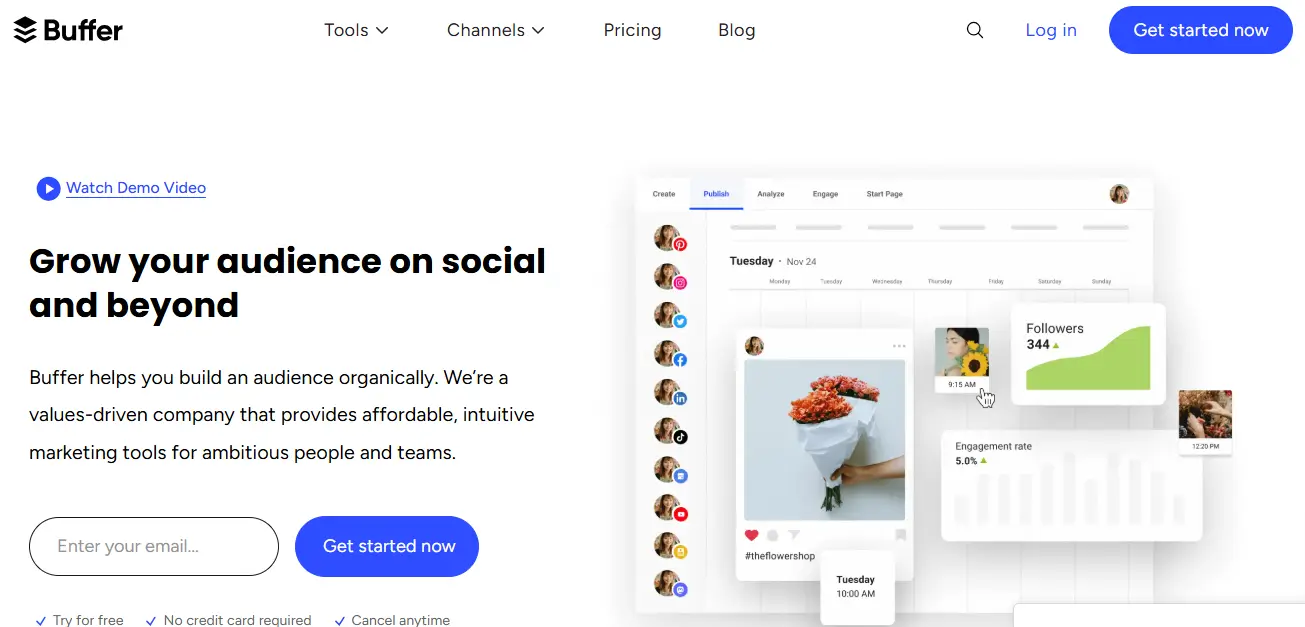
Buffer is an easy-to-use social media scheduling and analytics tool. It focuses on helping businesses post smarter and track performance effortlessly.
- Key Features:
- Simple post-scheduling for major social platforms.
- Basic analytics to monitor engagement and reach.
- Integration with tools like Shopify and other ecommerce platforms.
- Benefits for Ecommerce:
With Buffer, ecommerce websites can create a steady stream of content to engage customers and drive traffic to their online store. - Pricing: Free plan available; paid plans start at $6/month per social channel.
3. Sprout Social
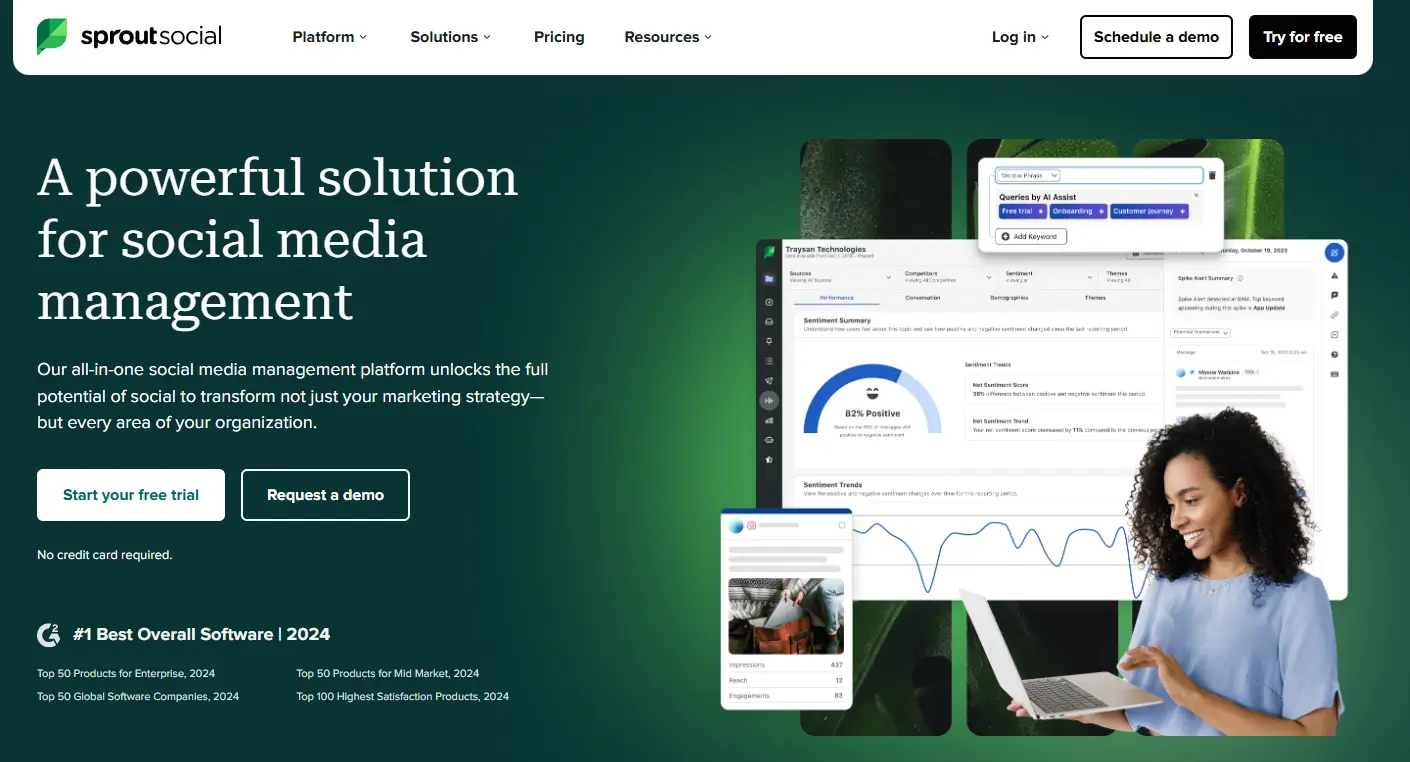
Sprout Social is a comprehensive social media management tool that caters to larger ecommerce businesses and brands. It combines scheduling, analytics, and customer interaction features.
- Key Features:
- Smart scheduling to maximize audience reach.
- In-depth analytics for improving marketing efforts.
- Social listening tools to monitor trends and customer behavior.
- Benefits for Ecommerce:
Sprout Social empowers businesses to manage social interactions, refine their pricing strategies, and build stronger customer relationships. - Pricing: Plans start at $249/month.
eCommerce Automation Tools
Automation tools are a game-changer for ecommerce businesses, helping streamline operations, save time, and improve efficiency. Whether it’s managing workflows or simplifying repetitive tasks, these tools allow businesses to run their online store efficiently while focusing on growth.
1. Zapier
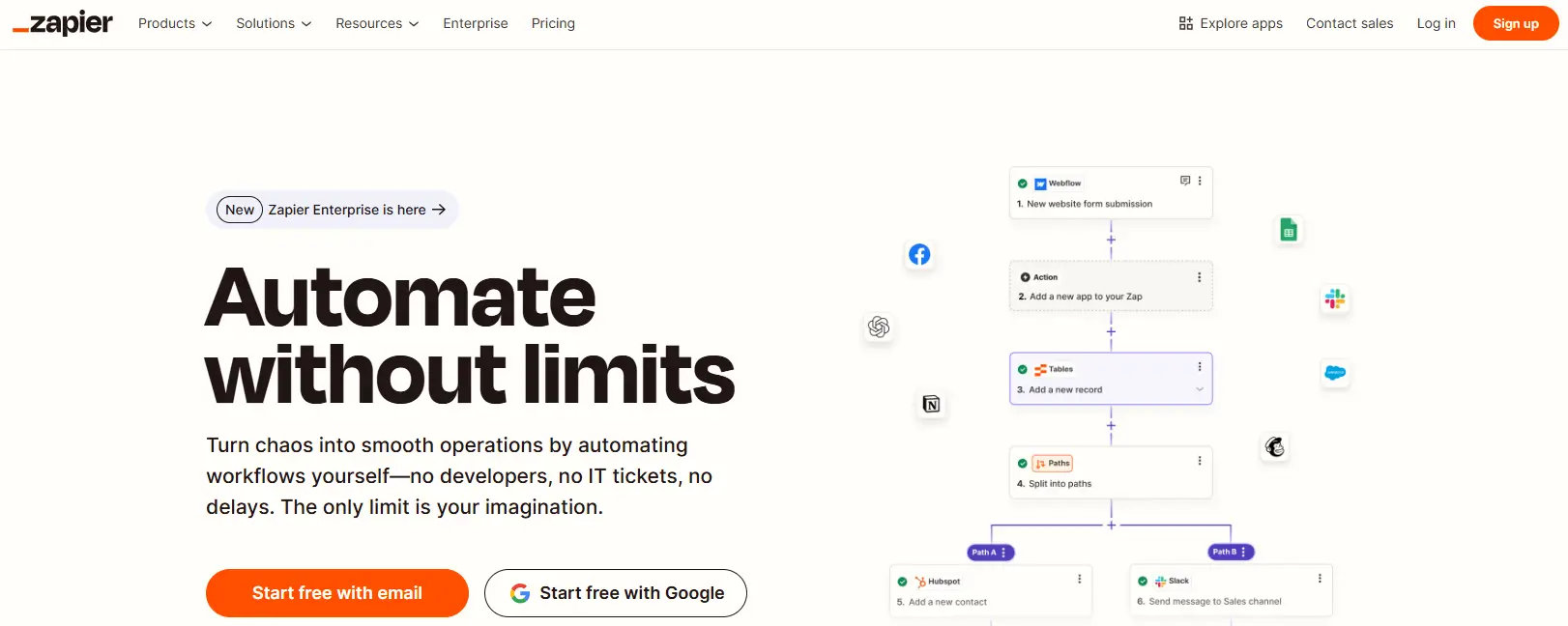
Zapier connects your favorite apps and automates workflows, making it easy to manage tasks across different platforms.
- Key Features:
- Pre-built integrations for thousands of apps, including Shopify and WooCommerce.
- Automation of repetitive tasks like order tracking and email notifications.
- Customizable workflows to suit unique business needs.
- Benefits for Ecommerce:
Zapier enables ecommerce businesses to save time and increase productivity by automating manual tasks. - Pricing: Free for basic features; paid plans start at $19.99/month.
2. Shopify Flow

Shopify Flow is an automation tool designed exclusively for Shopify users, helping them create custom workflows without any coding.
- Key Features:
- Automation templates for inventory updates, fraud alerts, and more.
- Integration with other Shopify apps to enhance functionality.
- Simplified triggers and actions to customize workflows.
- Benefits for Ecommerce:
Shopify Flow simplifies operations, allowing businesses to focus on selling and growing their online store. - Pricing: Free for Shopify Plus users.
3. ActiveCampaign

ActiveCampaign combines marketing automation, email marketing, and CRM features, making it a versatile tool for ecommerce websites.
- Key Features:
- Automation workflows for email campaigns, follow-ups, and customer journeys.
- CRM capabilities to manage and track customer relationships.
- Integration with popular ecommerce platforms like Shopify and BigCommerce.
- Benefits for Ecommerce:
ActiveCampaign enhances customer engagement by personalizing interactions and automating the marketing process. - Pricing: Plans start at $29/month.
eCommerce Analytics Tools
Understanding customer behavior and measuring performance is vital for running a successful online store. With the right analytics tools, businesses can gain actionable insights, optimize their operations, and drive growth. Here are the top tools to help you monitor your ecommerce site and improve decision-making.
1. Google Analytics
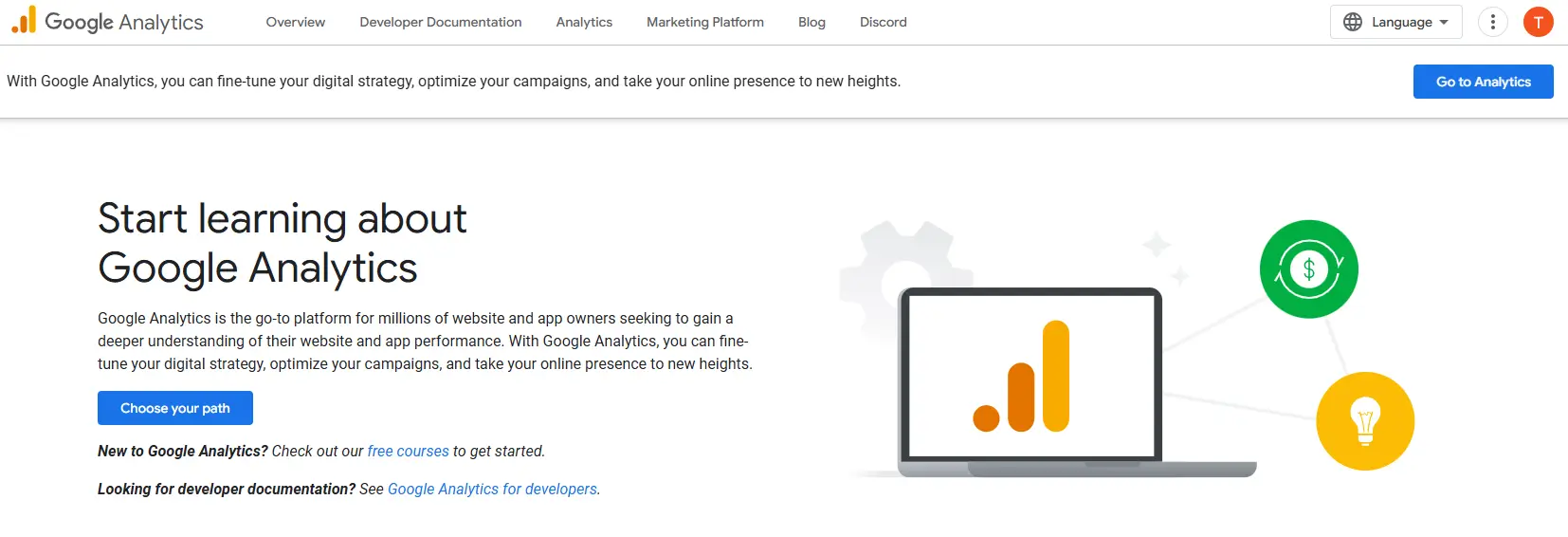
Google Analytics is a must-have tool for tracking traffic, user interactions, and conversions on your ecommerce website.
- Key Features:
- Detailed reports on traffic sources, bounce rates, and session durations.
- Insights into product performance and customer behavior.
- Tools for tracking e-commerce-specific metrics like cart abandonment and conversion rates.
- Benefits for Ecommerce:
Google Analytics helps ecommerce businesses identify what’s working and refine their strategies for better results. - Pricing: Free for standard features; premium plans available under Google Analytics 360.
2. Hotjar

Hotjar provides visual tools like heatmaps and session recordings to understand how users interact with your ecommerce site.
- Key Features:
- Heatmaps to see where users click and scroll on your site.
- Session recordings to track individual user journeys.
- Feedback polls and surveys to gather user insights.
- Benefits for Ecommerce:
Hotjar enables online stores to identify pain points, improve user experience, and optimize for higher conversions. - Pricing: Free for basic features; paid plans start at $32/month.
3. Mixpanel

Mixpanel focuses on tracking product usage and customer engagement to help ecommerce businesses make data-driven decisions.
- Key Features:
- Event tracking to monitor user actions like clicks and purchases.
- Funnels and retention analysis to understand customer behavior.
- Real-time reporting and segmentation tools.
- Benefits for Ecommerce:
Mixpanel helps businesses optimize their ecommerce websites by revealing trends in user engagement and purchase patterns. - Pricing: Free plan available; paid plans start at $25/month.
eCommerce SEO Tools
Search Engine Optimization (SEO) is crucial for driving organic traffic to your ecommerce website. The right SEO tools can help with keyword research, tracking rankings, and improving visibility, ensuring your online store reaches its potential customers. Here are the top tools for optimizing your ecommerce site.
1. Ahrefs

Ahrefs is a comprehensive suite of SEO tools designed for businesses to improve their search rankings and monitor competitors.
- Key Features:
- Keyword research tools for identifying high-value search terms.
- Backlink analysis to track and build link profiles.
- Site audits to uncover and fix technical SEO issues.
- Benefits for Ecommerce:
Ahrefs helps ecommerce brands boost visibility on search engines and attract more traffic to their online store. - Pricing: Plans start at $99/month.
2. SEMrush
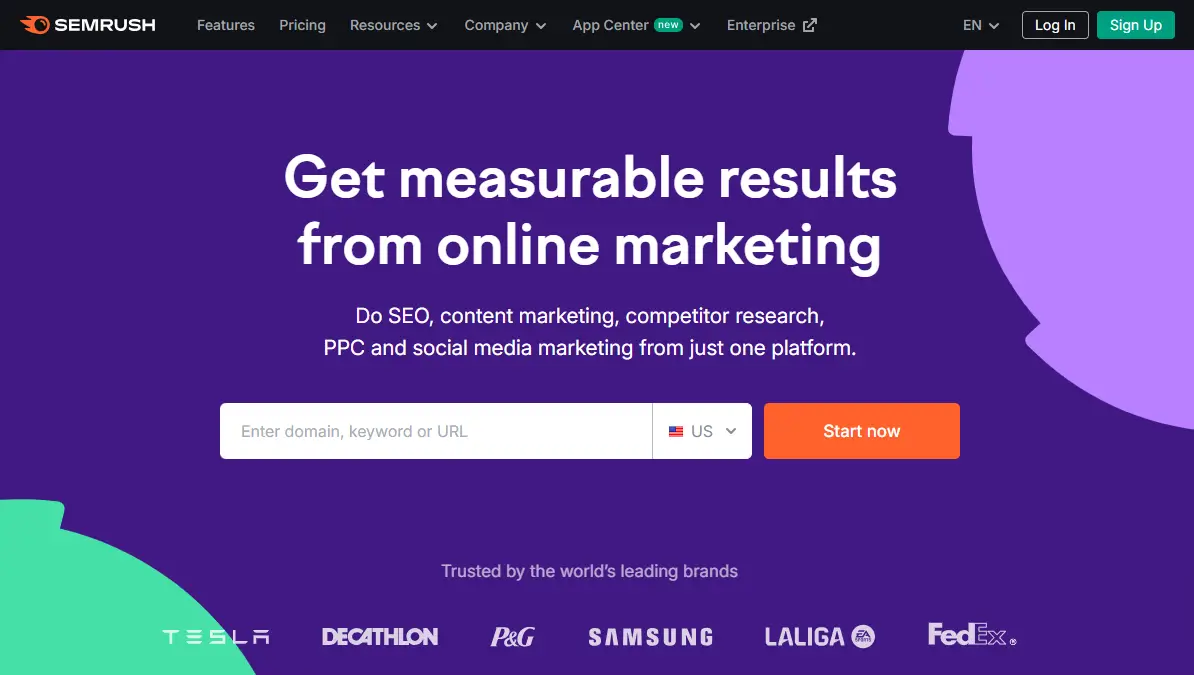
SEMrush is an all-in-one platform for managing SEO, content marketing, and online advertising campaigns.
- Key Features:
- Tools for keyword research and competitor analysis.
- On-page SEO audits to optimize content.
- Analytics for tracking performance and identifying growth opportunities.
- Benefits for Ecommerce:
SEMrush enables businesses to refine their pricing strategies, improve customer engagement, and generate more sales through organic traffic. - Pricing: Plans start at $129.95/month.
3. Moz

Moz is a trusted name in the world of SEO tools, offering solutions for tracking rankings, optimizing websites, and building links.
- Key Features:
- Domain Authority (DA) metrics to measure website credibility.
- On-page grader for optimizing content on your ecommerce site.
- Tools for tracking keyword rankings and improving site visibility.
- Benefits for Ecommerce:
Moz simplifies the SEO process for ecommerce websites, helping businesses rank higher on search engines and attract potential customers. - Pricing: Plans start at $99/month.
How to Choose the Right E-commerce Tools for Your Business
With so many ecommerce tools available, selecting the best options for your online store can feel overwhelming. The key is to focus on tools that align with your business needs, budget, and long-term goals. Here’s a step-by-step guide to help you choose:
1. Identify Your Business Needs
Start by evaluating the areas where you need support. Are you looking to improve customer engagement, streamline inventory management, or enhance your marketing campaigns? Break down your requirements into categories like SEO tools, analytics tools, or customer service tools to make your search more focused.
2. Assess Your Budget
Determine how much you’re willing to invest. While some tools offer free versions, premium plans often include additional features like automation and integrations. Compare pricing to find the best ecommerce tools within your budget.
3. Look for Scalability
Choose tools that can grow with your business. For instance, a tool that supports multi-channel sales or advanced reporting will help as your ecommerce website scales up.
4. Consider Integrations
Ensure the tools you select integrate seamlessly with your existing ecommerce platform or website builder. For example, if you use Shopify or WooCommerce, opt for tools designed to work well with these platforms.
5. Test Before Committing
Many ecommerce tools offer free trials. Take advantage of these to evaluate the tool’s features and how it fits into your operations. This can save time and money in the long run.
6. Read Reviews and Case Studies
Check user reviews to learn how other ecommerce businesses have benefited from the tools. Look for case studies or testimonials that highlight success stories similar to your goals.
7. Focus on ROI
Ultimately, the tools you choose should help your online store generate revenue or save time. Track metrics like increased sales, improved customer satisfaction, or reduced manual workload to gauge success.
Conclusion
The success of any ecommerce business relies on having the right tools to manage and grow your online store efficiently. Whether you need to enhance customer relationships, streamline your marketing process, or improve inventory management, the tools we’ve outlined provide a solid starting point.
From customer service tools like Desku and Gorgias to analytics tools like Google Analytics and Hotjar, each tool plays a unique role in helping you run a successful online store. Remember to evaluate your business needs, test tools before committing, and focus on those that align with your goals.
By investing in the best ecommerce tools, you’ll be well on your way to optimizing your operations, boosting customer satisfaction, and driving long-term growth.
FAQ Section
Why are eCommerce tools important for businesses?
Ecommerce tools help businesses manage their operations, streamline workflows, and enhance the customer experience. They support key activities like marketing automation, inventory management, and tracking customer behavior, which are essential for growth.
What are some must-have tools for starting an online store?
Some essential tools include:
Ecommerce platforms like Shopify or WooCommerce.
Customer service tools like Desku or Freshdesk.
SEO tools like Ahrefs or SEMrush for better visibility.
Payment gateways to simplify transactions.
How do I choose the best ecommerce platform for my business?
Look for an ecommerce platform that aligns with your budget, scalability needs, and features. Popular options like Shopify and BigCommerce offer flexibility, while WooCommerce is great for businesses preferring open-source solutions.
What are the benefits of using automation tools for ecommerce?
Automation tools save time, reduce manual errors, and optimize workflows. They help with tasks like email marketing, order tracking, and customer relationship management, enabling businesses to focus on growth.
How can analytics tools help improve an ecommerce business?
Analytics tools like Google Analytics or Hotjar provide insights into user behavior, sales trends, and website performance. These insights help businesses refine strategies, improve the user experience, and drive more conversions.
- About the Author
- Latest Posts
Gaurav Nagani was the Founder of Desku, an AI-powered customer service software platform.
- Email Management: Best Strategies, Tools & Tips for SaaS and Ecommerce
- Shared Inbox Guide: Definition, Benefits, Tools & Best Practices 2025
- LivePerson Pricing Exposed: What They Don’t Show You on Their Website
- Automate Customer Support with AI A Practical Guide
- Desku vs UsePylon: Which One Scales Better for Startups?


